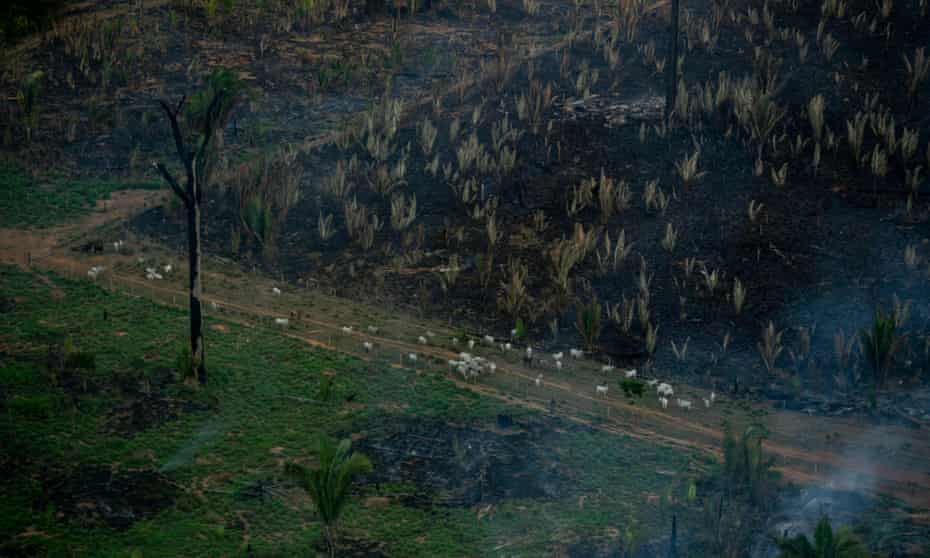Will Brazil seize the climate opportunities in the carbon-storing Amazon?
Fighting climate change is a huge opportunity for Brazil to catalyze the country’s sustainable economic development while also protecting the planet

Science is clear: climate change is unequivocal, and a result of human activity. The planet is already 1.1C warmer than pre-industrial levels and on a route to reach 2.5C or more this century, which could be catastrophic. The poorest and the most vulnerable populations will suffer more and earlier.
Climate change will bring droughts, floods, extreme temperatures and hurricanes that may become more intense and frequent overtime and impact billions of people. The rise of sea levels, lack of water and food, and regions becoming unfeasible to live may generate massive migrations in a planet already closing frontiers.
That is the bad news. The good news is that we can mitigate such a catastrophic route and deliver a safe planet to our children and the next generations. We need to achieve it in the next three decades. Time is short, the challenge is huge, but it is attainable. The two major challenges will be ending the burning of fossil fuels and halting deforestation.
If, for some countries, fighting climate change is a constraint, for others it is an opportunity. Brazil is among those that can contribute to the planet and foster its own development based on a green and sustainable economy. The country hosts two of the most important and diverse tropical forests in the world: the Amazon and the Atlantic forest. Almost 20% of the Amazon (73m hectares) was cut in the last decades, while 88% of the Atlantic forest (115m hectares) disappeared since the arrival of the Europeans in 1500.
We must stop the deforestation of the Amazon before it reaches the tipping point to become a savanna. The 20% deforestation threshold could shift the largest tropical forest of the world into a source of carbon emission, rather than a sink, affecting the climate, the largest reservoir of freshwater, and one of the richest areas of biodiversity on the planet. It would also affect a high number of indigenous groups.
Despite the increase in deforestation in the last years, Brazil has successfully controlled it in the past. From 2004 to 2012, deforestation in the Amazon decreased 80% due to coordinated public policies to reduce illegal foresting, create protected areas and restrict the expansion of soy and cattle. At the same, food production by large farmers increased and smallholder farming was strengthened; it was a win-win situation that was then abandoned by the current Brazilian federal government.
Getting back towards zero deforestation of the Amazon is one of the greatest contributions Brazil may offer to the world, in addition to guaranteeing resilience to remain a global food producer. However, the climate emergency asks more. Restoring the Atlantic forest, sequestrating large amounts of carbon from the atmosphere, could be a second major contribution. Doing so would protect biodiversity, conserve water and mitigate climate change, and at a low cost compared to other regions of the planet.
Restoring 5m hectares of native trees to protect the springs and streams of the Atlantic forest does not compete with food production. It will also contribute to water supply and hydroelectricity generation, ameliorating potential water crises and risks of electricity shortage for a biome that hosts 70% of Brazilians and generates 80% of the national GDP.
Planting 10m hectares of trees to replace degraded pastures would create a dynamic forest economy with timber and ecosystem services, and create many new jobs. Public policies, a sustainable value chain of commodities like sugar, orange juice, pulp, cocoa and coffee, and the carbon market may attract investments at the speed and scale demanded by the climate emergency. The success of such a foresting project could be a benchmark to the world during the decade on ecosystem restoration declared by the UN.
Some places in the world are uniquely positioned to fight climate change, protect nature, and foster economic growth at the same time. Brazil should not, and cannot, miss this opportunity.
-
Luis Fernando Guedes Pinto is the knowledge director of SOS Mata Atlantica
